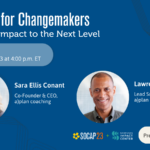We will introduce a new content series at SOCAP17. Five Guest Curators, all leaders in the impact space, are now developing their own SOCAP Spotlight sessions. Each Spotlight will dive deep into a key concept within impact. Guest Curator B Lab’s Spotlight will focus on the potential for businesses to be systemic change agents for good.
The Core Inquiry of B Lab’s Spotlight Sessions:
What is the next generation of systemic change being driven by enlightened businesses?
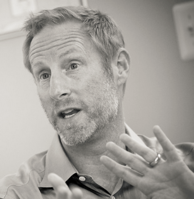 We recently sat down with Jay Coen Gilbert of B Lab, the non-profit most notably known for powering the B Corp movement, to understand how a leading cast of companies continues to set a positive precedent of how business can shape social and environmental issues.
We recently sat down with Jay Coen Gilbert of B Lab, the non-profit most notably known for powering the B Corp movement, to understand how a leading cast of companies continues to set a positive precedent of how business can shape social and environmental issues.
To date, the B Corp movement is a more than $100 billion dollar marketplace with over 2 million people earning their primary livelihood through 70,000 businesses in 50 countries that are B Corps or on the path to ‘be like a B Corp’ through use of the B Impact Assessment (B Lab’s impact management tool) and the benefit corp legal form. B Lab is now developing Spotlight Sessions for SOCAP17 to highlight this work.
What are the core concepts that B Lab will explore through your Spotlight at SOCAP17?
Businesses are at the heart of the SOCAP community. Often when we are in spaces focused on impact investing, the role of the investor and the needs of the investor are elevated, sometimes to the detriment of the needs of the businesses.
This Spotlight will focus specifically on the role of business and business leaders in creating the better world that SOCAP envisions. There are four themes we are eager to share:
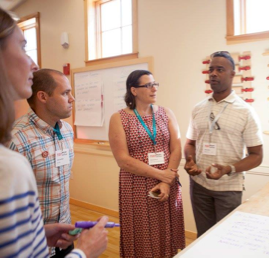 10 Years In: How Collaboration is Core to Scaling the B Corp Movement
10 Years In: How Collaboration is Core to Scaling the B Corp Movement
Certified B Corporations are the drum majors of the social business movement, and embedded within a thriving ecosystem of investors, academics, policymakers and businesses that together accomplish great feats. Cross-sector collaborations propel the movement forward such as ~100 global researchers convening to unlock impact data to 700 North American businesses gathering locally to dig into the role of diversity, equity and inclusion in business. Hear motivating stories of collaboration in a time otherwise marked by division.
Ben Anderson, Moderator, B Lab
Michael Whelchel, Big Path Capital
Andrea Walker, Beneficial State Bank
Jessica Thomas, NC State University- Benefit Corp: What Investors Are Thinking
Many people who attend SOCAP are board members, investors, or asset owners that often have questions about benefit corp, the new corporate form that has been adopted by 5,000 companies. This session will aim to answer the following: What do investors think about this corporate structure? How will benefit corps be received by the public markets? How do I know if it makes sense for my business or investment? What are the operating and governance implications of adopting this new corporate form? What are the concrete steps to adopt?
Moderator: Donald Simon, Wendel Rosen
Matt Laessig Data.World
Nitin Chopra Shasta Ventures
Drew Tulchin, Meow Wolf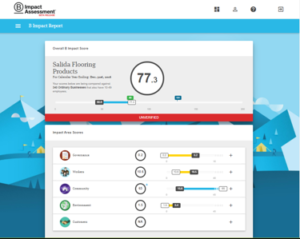
- Evolution of B Lab’s Gold Standard and Assessment Tools
The B Impact Assessment has become the most widely adopted impact measurement management tool in the world with 65,000+ companies, and hundreds of institutional partners using it. In this session, we will highlight the following: What types of best practices on impact are the companies learning through these tools? What is the process companies take to improve on these practices? How can investors, governments, supply chain managers and business groups recommend these tools to businesses and offer them guidance or technical support?
Moderator: Amanda Kizer, B Lab
Judy Park, Bain Capital
Todd Wegner, Laureate Education
Emily Allbritten, Athleta/Gap - Lessons from Growing the B Corp Movement in Latin America and Beyond
The fastest growing B Corp communities are in Latin America, Australia, and Europe, and this momentum is driven by inspired business leaders and supported by philanthropy, universities, and government in these markets. What is working in building an organic and thriving B Corp community in these places? What challenges lie ahead in scaling this work to East Africa, Southeast Asia, or the Middle East? What can the SOCAP community learn from B Lab’s successes and failures in balancing uniformity with local experimentation?
Alicia Darvall, B Lab
Danny Amalgor, Small Giants, B Lab Australia
Olivia Muiru, B Lab East Africa
Gonzalo Munez, Tricilos / Sistema B
What are some of the primary challenges you hope to address in your sessions?
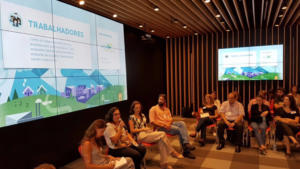
People who attend SOCAP may feel removed from what is happening in the broader business for good movement outside of impact investing or the specific companies in whom they have invested or know personally. These sessions will give the SOCAP audience an opportunity to better understand what is happening on the leading edge from the company perspective to complement their capital perspective. We’ll show extraordinary projects that CEOs and Managers are working on now that the SOCAP community should be aware of.
One example: Populist unrest is rising around the world because people feel the system no longer cares about them. If we don’t build a more inclusive economy, our social fabric will tear and that will be bad for business, not to mention society. To address this urgent need, last year the B Corp community engaged in its first collective action: the B Corp Inclusion Challenge. B Lab developed resources to help companies take action on inclusion. Hundreds of companies have been using B Lab’s Inclusive Economy Metrics Set, best practice guides, webinar series, and peer circles to set and meet goals to improve their performance on three metrics of their choosing that will help their business build a more inclusive economy.
 Another example: BanColombia, the third largest bank in South America, successfully launched an impact management partnership with B Lab to use the BIA to help hundreds, and soon thousands, of their key suppliers better understand and improve their impact. BanColombia is one of a growing number of large multinationals and public companies seeking to partner with B Lab on impact management. In addition to scaling the number of small and growing enterprises doing innovative work, engaging these larger players meaningfully is crucial to scaling the business for good movement.
Another example: BanColombia, the third largest bank in South America, successfully launched an impact management partnership with B Lab to use the BIA to help hundreds, and soon thousands, of their key suppliers better understand and improve their impact. BanColombia is one of a growing number of large multinationals and public companies seeking to partner with B Lab on impact management. In addition to scaling the number of small and growing enterprises doing innovative work, engaging these larger players meaningfully is crucial to scaling the business for good movement.
How has your organization’s work shaped your perspective on this theme?
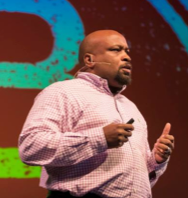 We see the overlap in the ecosystem–areas where the needs of businesses are the same as investors or foundations. We’ve also seen other places where businesses don’t necessarily wait for a dogma from their investors to make moves towards good. We’ve also seen the other side of the coin, where the advocacy of lead investors got companies to change their behavior for the good. We see all sides of the story.
We see the overlap in the ecosystem–areas where the needs of businesses are the same as investors or foundations. We’ve also seen other places where businesses don’t necessarily wait for a dogma from their investors to make moves towards good. We’ve also seen the other side of the coin, where the advocacy of lead investors got companies to change their behavior for the good. We see all sides of the story.
It reinforces for us that we should celebrate business owners and operators for what they’re doing on their own and understand what they want and need because they are closer to the social problems they are working to solve.
What do you hope attendees or participants will bring with them when they come to your sessions?
A sense of openness to learn. A sense of curiosity around ‘how can I be a more proactive supporter for these businesses?’
What do you hope attendees will leave with?
Attendees should leave with a concrete set of case studies, new connections they make in the room, and a sense of what they can do now to support this work.
What progress do you hope to see in the business for good movement within the next 10 years?
What we all want to see is scale and maturation. As an example, if the B Corp community and all the other players in this world do their job right, hundreds of thousands of businesses will raise their hands and say, “That’s cool and that creates value. I want to be a high impact company too.”
Already, we are seeing how a few leading businesses in almost every pocket of the world ranging from Colombia to Taiwan to Turkey are stepping up to be role models. And in 10 years, we can’t wait to see how that leadership has influenced millions of businesses of all shapes and sizes in those regions. Not every company will be able to achieve B Corp certification, but every company will strive to be better for their workers, communities, and the environment.
In 10 years, it may become the norm to choose to work for companies or invest in companies that have a higher purpose other than making money. The fact that there are millions of companies that think and act this way already will make it easier for workers and investors to support who they are most looking for.
Resources
- Brookings Report: Impact governance and management: Fulfilling the promise of capitalism to achieve a shared and durable prosperity
- Paul Polman on Unilever’s engagement with the B Corp movement
- Tips from Eileen Fisher on how to achieve B Corp Certification
Future Guest Curator Spotlights
More guest curators are developing sessions that will debut on stage at SOCAP17 in October. We will be sharing interviews with all of our guest curators including:
Follow the SOCAP blog for sneak peeks into our guest curated sessions. Get your ticket to SOCAP17 to join in the conversation.


